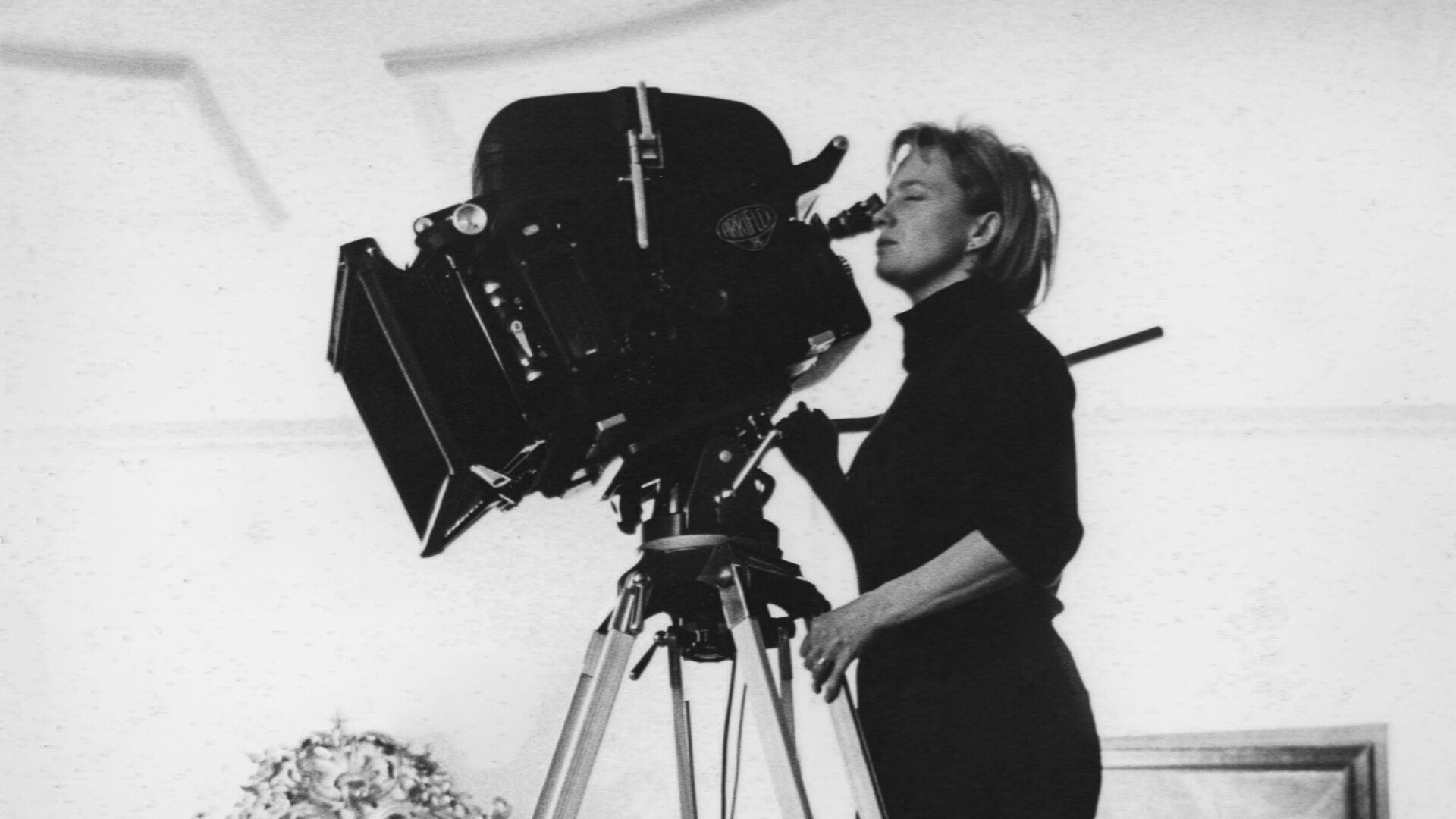June 12–July 1, 2025
One Hundred Years of Obsession: The Films of Mai Zetterling
“[Zetterling’s] will to direct made her persist against all odds. Her pitfalls, her successes, and her strategies are well worth reconstructing and, by doing so, we can discover why her position in film history and women’s history is so paradoxical—simultaneously remembered and even revered by some, yet completely forgotten by others.”
Mariah Larsson, A Cinema of Obsession: The Life and Work of Mai Zetterling
Poised on the edge of stardom and committed to an American studio contract, Mai Zetterling (1925–1994), an actor born in Västerås, Sweden, and trained in London at the Royal Dramatic Theatre, was decisive: she was dissatisfied, and would reinvent herself. “I consider myself still only a beginner, and I feel that after ten years I have achieved nothing of what I really want, especially in the cinema,” Zetterling wrote in 1951. What followed was an autodidact’s approach to learning filmmaking, the prelude to a directorial career that never fought for acceptance and instead charted a modernist path that earned the praise of supporters as varied as John Waters and Simone de Beauvoir.
“I’m time-ridden, time-obsessed, time-infatuated,” Zetterling wrote in her autobiography, and while she has been categorized as a feminist and a fantasist, her films are most concerned with the way the experiences of modern life—work, sex, art, and their public presentation—might be conveyed through a free-flowing approach to cinematic time. In all of her key works, no location or person exists purely in the present. The imagination travels willfully to rewrite the past, imagine the future, and loop back on itself, so that first love, searing trauma, death, birth, mature self-actualization, and the bruises of societal expectation all exist next to each other.
Her transition from a popular actor to an uncompromising, frequently over-budget director established a combative relationship with the mostly male critical establishment in Sweden, not to mention producers and the public. Except for her ambitious and exemplary debut Loving Couples, none of her features found widespread acceptance at home. In North America, her films, like those of her contemporaries Ingmar Bergman and Vilgot Sjöman, were branded as “Swedish Shockers,” censorship-free excavations of sexual neuroses—a reductive but marketing-friendly means by which her films could travel.
Today, her signature can be read in a variety of ways, some contradictory. Zetterling was an artist from a working-class background, but she never sought popular support. Her film The Girls inspired Beauvoir to propose a seven-part series adaptation of The Second Sex, but the film itself maintains an ironic position regarding the possibility of feminist solidarity. Her mix of audacious, intimate camera direction and satirical distance garnered comparisons to Federico Fellini and Luis Buñuel—filmmakers that Zetterling acknowledged as two of her favourites. But her voice is far too distinct to be merely a relative of those canonical figures.
On the occasion of Zetterling’s centenary, the most relevant conclusion might be that it is long past time to see the films on their own merits. This retrospective, drawing from recent restorations by the Swedish Film Institute, is the first to happen in Vancouver. Near-complete, it spans more than twenty years of her singular career, offering an opportunity to discover the sharp contrasts and exuberant elicitations of her time-obsessed art.
“Zetterling stands somewhere between Ida Lupino and Margarethe von Trotta, not because she was also a versatile actress and writer, but in the sense that she emerged from a scene already ripe with innovations, [only to] push those possibilities even further by uncompromisingly changing the camera’s point of view to a feminine one.”
Ehsan Khoshbakht, Il Cinema Ritrovato
“A fearless filmmaker whose work is socially and sexually transgressive … [Zetterling’s films] display not just a thematic but a pronounced stylistic unity.”
Pamela Hutchinson, Sight and Sound
Acknowledgments
Special thanks to John Bulmer, Jeff Griffith-Perham (BAMPFA), Stephanie Gross (Film Forum), and Kajsa Hedström (Swedish Film Institute) for their assistance in mounting this series.
Media
List of Programmed Films
| Date | Film Title | Director(s) | Year | Country |
|---|---|---|---|---|
| 2025-Jun | Loving Couples | Mai Zetterling | 1964 | Sweden |
| 2025-Jun | Doktor Glas | Mai Zetterling | 1968 | Denmark . . . |
| 2025-Jun | The Girls | Mai Zetterling | 1968 | Sweden |
| 2025-Jun | Amorosa | Mai Zetterling | 1986 | Sweden |
| 2025-Jun | Night Games | Mai Zetterling | 1966 | Sweden |
| 2025-Jun | We Have Many Names + Vincent the Dutchman | Mai Zetterling |
